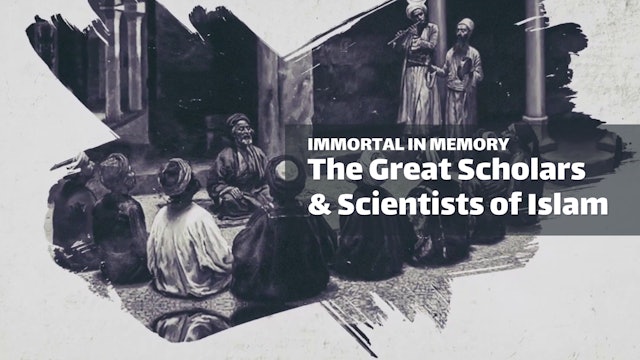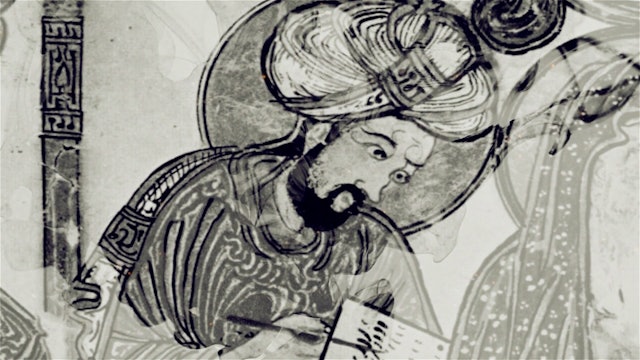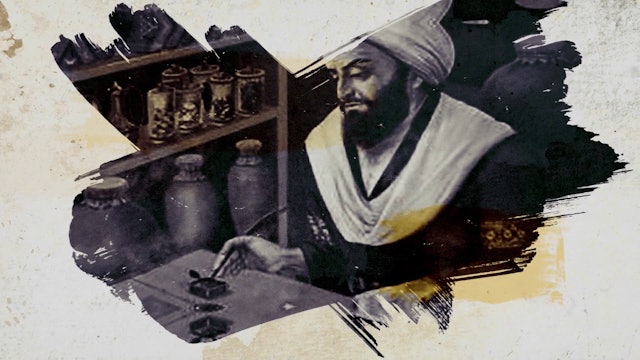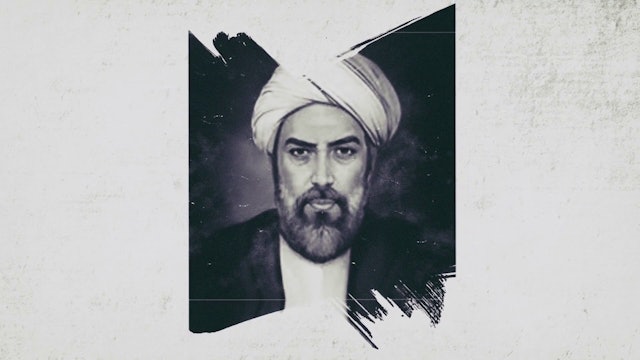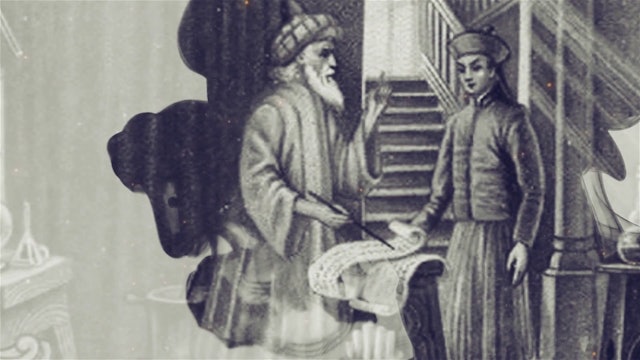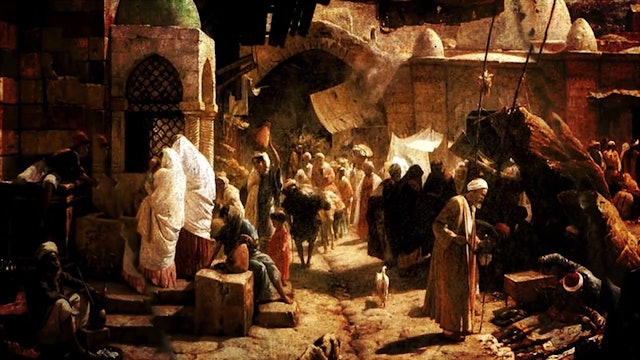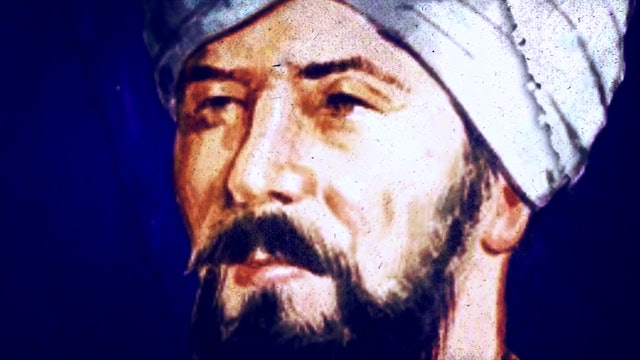Immortal in Memory, the Great Scholars and Scientists of Islam
This series is a vast treasure trove of bothe scientific and culture knowledge. We will venture to the past and unravel the chronicles of Islamic scholarship history of the most renowned Arab and Muslim figures. Join us as we witness the great and invaluable legacy that these icons of the pre-modern world have left us all.
-
Malik Bin Anas
Malik ibn Anas (711–795 CE) was a prominent Islamic scholar and jurist, the founder of the school of Islamic jurisprudence that bears his name. Born in Medina, he dedicated his life to the study of Islamic law and traditions. Malik compiled the famous legal text "al-Muwatta", which is considered ...
-
Jaber Ibn Hayyan
Jabir ibn Hayyan (c. 721–c. 815 CE), known as Geber, was an influential polymath, alchemist, and chemist during the Islamic Golden Age. Born in Tus, Iran, his experimental techniques and writings advanced the fields of alchemy and chemistry. His works, collected as the Jabirian corpus, laid the f...
-
Ibn Sina
Ibn Sina (980–1037 CE), also known as Avicenna, was a Persian polymath who made significant contributions to various fields, including medicine, philosophy, and theology. His most famous work, "The Canon of Medicine," became a standard medical textbook in Europe and the Islamic world for centurie...
-
Ibn Malka
Ibn Malka al-Baghdadi, also known as Abu'l-Qasim Ali ibn Muhammad ibn Malka al-Baghdadi, was a medieval Arab historian and scholar who lived during the Abbasid era. He is renowned for his works on Islamic history and genealogy, providing valuable insights into the social and political dynamics of...
-
Ibn Al-Khatib
Ibn al-Khatib (1313–1374 CE) was a prominent Andalusian polymath, poet, historian, and statesman. Born in Granada, he served in various governmental positions under the Nasrid dynasty. Ibn al-Khatib is celebrated for his literary works, including poetry, historiography, and essays. His writings o...
-
Ibn Al-Haytham
Ibn al-Haytham (c. 965–c. 1040 CE), also known as Alhazen, was a pioneering Arab mathematician, physicist, and astronomer during the Islamic Golden Age. Born in Basra, Iraq, he made significant contributions to various fields, including optics, mathematics, and astronomy. Ibn al-Haytham's most fa...
-
Ibn Al-Nafis
Ibn al-Nafis (1210–1288 CE), also known as Ala-al-din Abu al-Hasan Ali ibn Abi-Hazm al-Qarshi al-Dimashqi, was a renowned Arab physician, theologian, and polymath from Damascus, Syria. He is best known for his groundbreaking work in medicine, particularly his pioneering understanding of pulmonary...
-
Al-Tusi
Nasir al-Din al-Tusi (1201–1274 CE) was a Persian polymath born in Tus, Iran. He made significant contributions to various fields including astronomy, mathematics, philosophy, and theology. Al-Tusi's most notable work was his astronomical observations and writings, which included the development ...
-
Imam al-Shafi'i
Imam al-Shafi'i (767–820 CE) was an important jurist who founded the Shafi'i school of Islamic jurisprudence. Born in Gaza, Palestine, he spent much of his life traveling and studying under various scholars across the Islamic world. Al-Shafi'i's legal theories and methodologies laid the groundwor...
-
Ibn Al-Bitar
Ibn al-Bitar (1188–1248 CE) was an Arab botanist, pharmacist, and scientist who made significant contributions to the fields of botany, pharmacology, and medicine during the Islamic Golden Age. Born in Andalusia, Spain, he traveled extensively throughout North Africa and the Middle East, collecti...
-
Sadr Al-Din Al-Shirazi
Sadr al-Din al-Shirazi (c. 1571–1640 CE), also known as Mulla Sadra, was a Persian philosopher and mystic of the Islamic Safavid era. Born in Shiraz, Iran, he is considered one of the most influential philosophers in the Islamic world. Mulla Sadra's philosophical system, known as "Transcendent Th...
-
Imam Muslim
Muslim ibn al-Hajjaj al-Qushayri (c. 815–875 CE), commonly known as Imam Muslim, was a prominent Islamic scholar and hadith compiler during the Abbasid era. Born in Nishapur, Iran, he dedicated his life to the study of hadith, the sayings and actions of the Prophet Muhammad. Imam Muslim is best k...
-
Ibn Khaldun
Ibn Khaldun (1332–1406 CE), full name Abu Zayd Abd al-Rahman ibn Muhammad ibn Khaldun al-Hadrami, was a pioneering Arab historian, sociologist, and philosopher. Born in Tunis, he is best known for his groundbreaking work, "The Muqaddimah" (also known as "Prolegomena" or "Introduction to History")...
-
Al-Tabari
Abu Ja'far Muhammad ibn Jarir al-Tabari (839–923 CE), commonly known as al-Tabari, was a highly esteemed Persian scholar, historian, and commentator of the Quran. Born in Amol, Iran, he is best known for his monumental work, "Tarikh al-Rusul wa al-Muluk" (History of the Prophets and Kings), commo...
-
Al-Kindi
Al-Kindi (c. 801–873 CE), full name Abu Yusuf Ya'qub ibn Ishaq al-Kindi, was an influential Arab philosopher, mathematician, and scientist during the Islamic Golden Age. Born in Kufa, Iraq, he made significant contributions to various fields, including philosophy, mathematics, astronomy, medicine...
-
Abdul Qader Al-Jilani
Abdul Qadir al-Jilani (1077–1166 CE) is a revered Islamic scholar, mystic, and theologian, known for his influential teachings and spiritual leadership. Born in the Iranian province of Gilan, he later settled in Baghdad, where he founded the Qadiriyya Sufi order, one of the most widespread Sufi o...
-
Al-Dahabi
Al-Dhahabi, full name Shams al-Din Abu Abdallah Muhammad ibn Ahmad ibn Uthman al-Dhahabi (1274–1348 CE), was a highly respected Islamic scholar, historian, and biographer from Damascus, Syria. He is best known for his extensive works in hadith literature and biographical studies of narrators of h...
-
Ahmad Bin Hanbal
Ahmad ibn Hanbal (780–855 CE) was a renowned Islamic scholar and jurist, considered one of the founders of the Hanbali school of jurisprudence. Born in Baghdad, Iraq, he dedicated his life to the study of Islamic law and Hadith. Ibn Hanbal's adherence to traditional Islamic teachings, particularl...
-
Al-Biruni
Abu Rayhan al-Biruni (973–1048 CE) was a Persian polymath who made significant contributions to various fields including astronomy, mathematics, geography, anthropology, and pharmacology. Born in Khwarezm (present-day Uzbekistan), he studied in Baghdad and later traveled extensively, conducting r...
-
Al-Khwarizimi
Muhammad ibn Musa al-Khwarizmi (c. 780–c. 850 CE) was a Persian mathematician, astronomer, and scholar who made significant contributions to the fields of mathematics, astronomy, and geography during the Islamic Golden Age. Born in Khwarizm (now Khiva, Uzbekistan), he worked in the House of Wisdo...
-
Al-Idrisi
Al-Idrisi (1100–1165 CE), also known as Abu Abdallah Muhammad al-Idrisi, was a renowned Arab geographer, cartographer, and scholar during the Islamic Golden Age. Born in Ceuta, Spain, he spent much of his life traveling and studying in various centers of learning across the Islamic world. Al-Idri...
-
Al-Jazari
Al-Jazari (1136–1206 CE), full name Al-Shaykh al-Mu'izz ibn Ibrahim ibn al-Mu'izz ibn al-Jazari, was a pioneering Arab engineer, inventor, and polymath from the Islamic Golden Age. Born in Jazira, Upper Mesopotamia (modern-day Turkey), he served as a chief engineer at the Artuqid court in Diyarba...
-
Abu Al-Wafa' Buzjani
Abu al-Wafa' Buzjani (940–998 CE), also known as Abu al-Wafa al-Buzjani, was a Persian mathematician, astronomer, and mathematician from the Islamic Golden Age. Born in Buzjan, Iran, he made significant contributions to mathematics and astronomy. Abu al-Wafa' is best known for his work in trigono...

